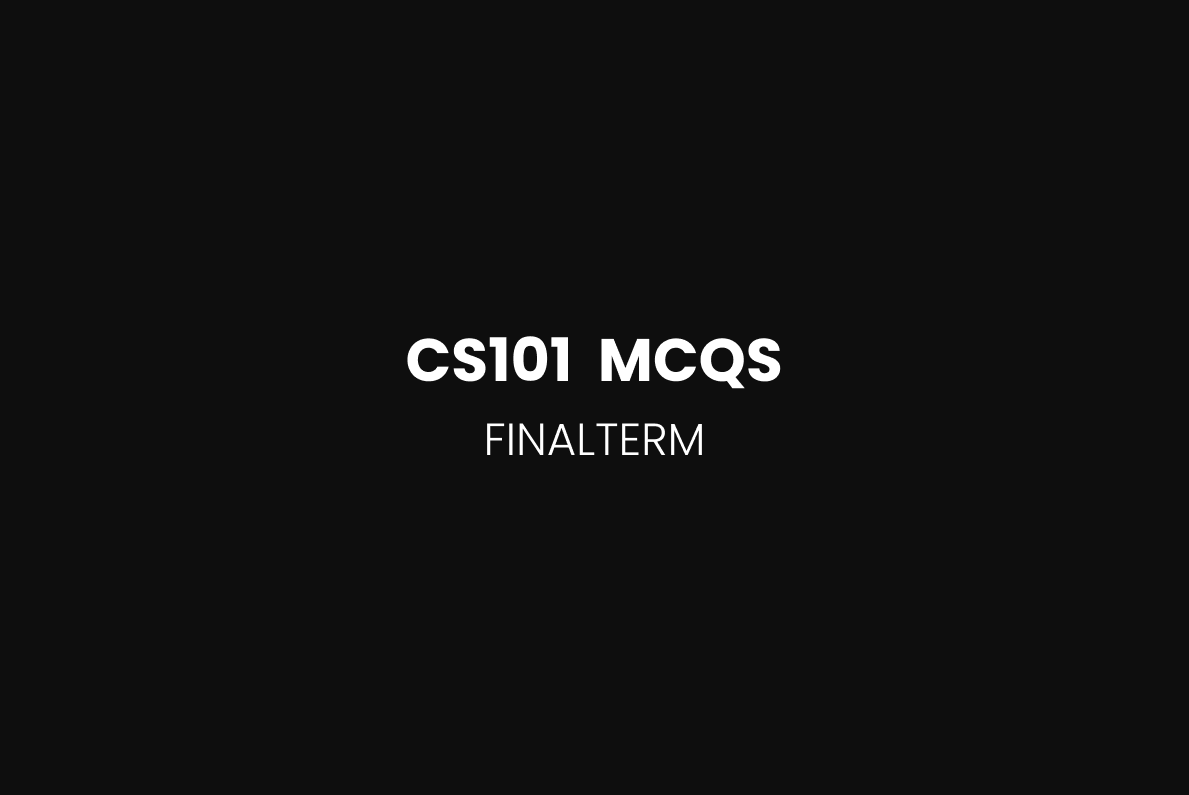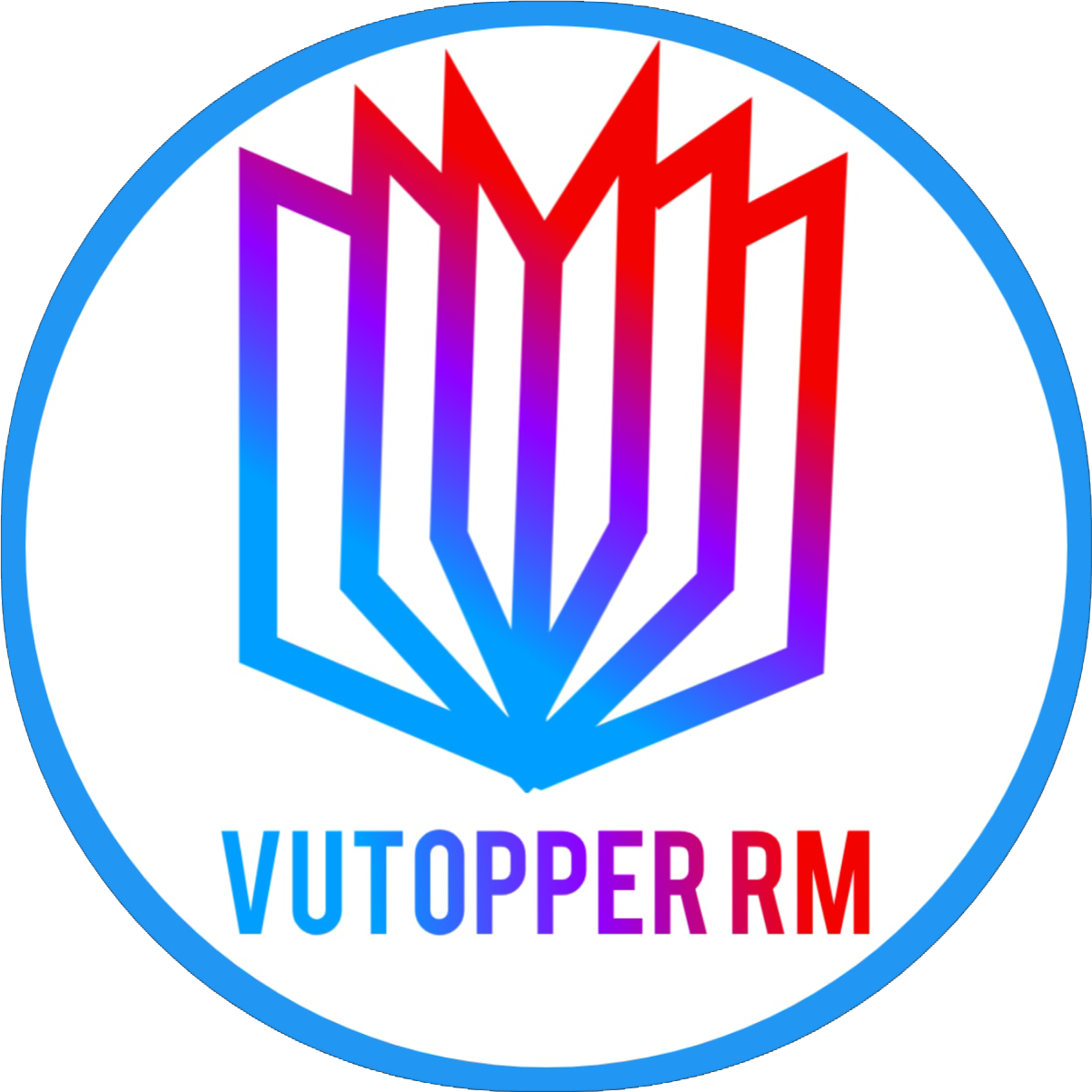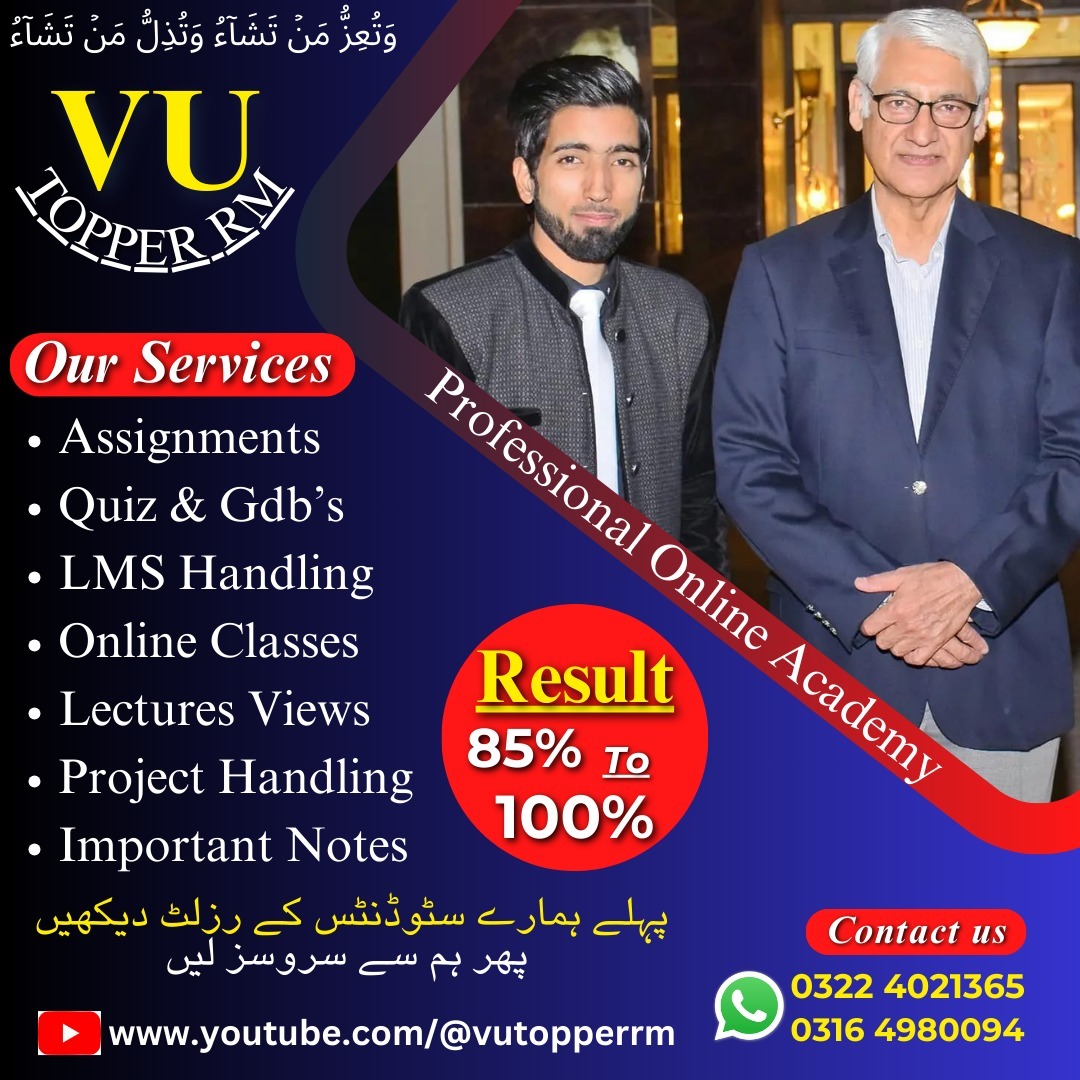
This document, CS101 Final Term MCQs, is a comprehensive collection of multiple-choice questions (MCQs) that covers various key topics in the field of computer science, specifically tailored for students of the CS101 – Introduction to Computing course at Virtual University (VU). Here’s a breakdown of the most important topics featured in these notes:
Fundamentals of Computing:
- The document contains questions about the core concepts of computing, such as binary systems, data storage, and algorithmic processes.
- Basic terms such as arrays, databases, and computer architecture (e.g., CPU components) are covered.
Programming Concepts:
- There are several questions related to programming paradigms, including imperative, declarative, and object-oriented programming (OOP).
- Control structures like loops, conditional statements (if-else), and relational operators are discussed in depth.
Database Management Systems (DBMS):
- Questions related to databases cover essential concepts such as schemas, database models, and operations (e.g., SELECT and PROJECT).
- There is also coverage of topics like data mining, hashing, and indexing in databases.
Artificial Intelligence (AI):
- AI-related topics include self-driving cars, Turing tests, and the use of AI in medical robotics.
- Concepts like image processing and information retrieval are also examined.
Microsoft Office Tools:
- The document features numerous questions about the functionalities of Microsoft Word, such as using the Ribbon, working with headers, footers, and text formatting (WordArt, ClipArt).
- Basic commands in Word like Ctrl+C for copy, Ctrl+V for paste, and working with bullets and paragraph formatting are frequently asked about.
Ethical and Legal Aspects:
- There are several questions touching on the legal side of computing, including copyright issues, patents, and intellectual property rights (IPR).
- Ethical issues such as privacy, plagiarism, and data protection are also key elements.
Networking Concepts:
- The basics of networking, including concepts like LAN, WAN, IP addresses, and network layers, are well-represented.
- Questions about routers, firewalls, and VoIP (Voice over Internet Protocol) demonstrate an introduction to communication technologies.
Algorithms and Data Structures:
- Fundamental topics like different types of algorithms (e.g., divide and conquer), searching algorithms (e.g., binary search), and data structures (e.g., stacks, queues, trees) are examined.
Software Engineering:
- The document delves into the Software Development Life Cycle (SDLC), with questions on phases like coding, testing, and prototyping.
- There is also coverage of cohesion, coupling, and various software development models like the waterfall and spiral models.
Computer Science in Real-Life Applications:
- The document highlights the impact of computer science in various fields such as healthcare (medical robots) and everyday activities (email, instant messaging, and social media usage).
- Environmental issues related to computing, such as e-waste and the excessive use of paper, are also touched upon.
These topics are crucial for understanding the basic concepts of computer science and its applications in real-world scenarios. The notes serve as an effective guide for students preparing for their final exams in CS101.


Leave a Reply